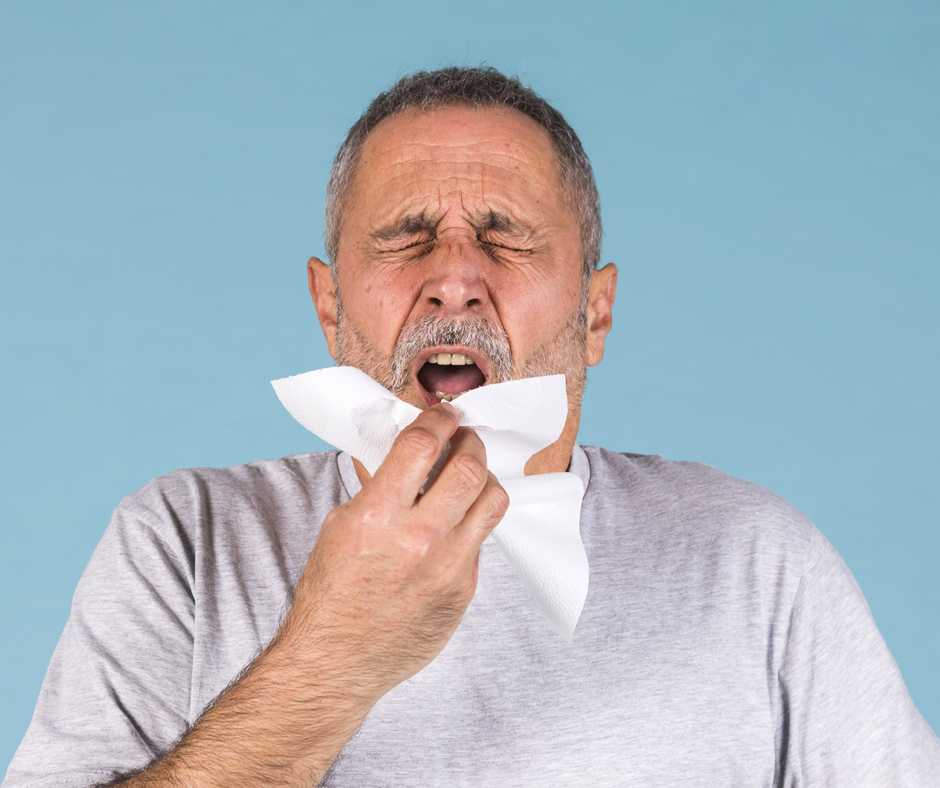Coughing. Wheezing. Shortness of breath. Are your allergies on the fritz or is your COPD getting worse? Deciding between the two may be more difficult than you think – because it’s often both.
Chronic Obstructive Pulmonary Disease (COPD) is a group of respiratory diseases (typically emphysema and chronic bronchitis) that causes the airways to swell, making it harder to breathe. Common symptoms include coughing, wheezing, fatigue, and shortness of breath.
Allergies are the immune system’s response when exposed to certain “triggers” like mold, pet dander, pollen, certain foods, and others. Allergies can cause everything from itchy, watery eyes and sneezing to thick mucus that blocks airways and makes breathing difficult.
If you have both, you’re in double trouble. Because both conditions affect the respiratory symptom, patients who have COPD and allergies are at increased risk of complications from both. In fact, a 2013 study by the American Thoracic Society showed that COPD patients who also have allergies have more severe respiratory symptoms and are at increased risk of dangerous COPD exacerbations.
That means if you have COPD, you should be extra careful to minimize your exposure to known or potential allergens.
Tips to Avoid Complications
If you suffer from COPD and allergies, there are steps you can take to avoid dangerous interactions between the two.
- Treat your allergies. During allergy season and when exposed to known allergens, medications like antihistamines, decongestants, and nasal steroids can help minimize your allergy-related symptoms.
- Talk to your doctor. Your doctor can perform an allergy test to determine your allergy triggers and help you create a plan to combat allergies and COPD. They may suggest allergy immunotherapy, a treatment that slowly introduces known allergens to your immune system to reduce symptoms.
- Allergy-proof your environment. If you have indoor allergies, you can install air filtration systems in your home that help purify your indoor air. You should also clean and sanitize your home frequently and change your HVAC air filter regularly.
- Check for pollen. Before you leave the house during allergy season, check your local pollen and mold counts – if levels are high, you may want to reschedule your outing. The National Allergy Bureau has a live pollen tracker that’s country-wide.

